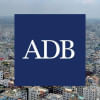ADB approves $600m to accelerate economic recovery

The Asian Development Bank (ADB) has become the first among multilateral and bilateral lenders to respond to the interim government's call for budgetary support, approving $600 million aimed at easing pressure on foreign exchange reserves and accelerating economic recovery.
"ADB's policy-based loan (PBL) promptly responds to Bangladesh's immediate development financing needs following the political transition. The reforms target improvements in economic management and governance as well as economic diversification and competitiveness," ADB Regional Lead Economist Aminur Rahman said after the loan was approved yesterday.
ADB's programme was developed in close collaboration with the International Monetary Fund, World Bank, and other development partners, he said in a statement.
The interim government, which inherited high inflation and dwindling foreign currency reserves, has sought budgetary support from various development partners to stabilise the economy and bolster dollar reserves.
A finance ministry official said the ADB may disburse the $600 million by December.
Apart from this loan, the interim government sought an additional $1 billion from the ADB for banking sector reforms, the official said, adding that the government may get $500 million of that by June.
The loan will help Bangladesh introduce key policy actions with the aim of increasing domestic resource mobilisation while improving transparency and accountability, according to the ADB.
The PBL has a package of structural reforms supporting the mobilisation of domestic resources, efficiency of public investment projects, developing the private sector, reforming state-owned enterprises, and promoting transparency and good governance, the ADB said.
Bangladesh has been struggling with revenue mobilisation as it possesses one of the lowest tax-to-gross domestic product ratios in the world at only 7.4 percent.
The programme includes digitalisation and green initiatives, rationalisation of tax incentives and exemptions, and measures to assist taxpayers to boost tax morale. Improved transparency and efficiency of public investment projects through increased digitalisation is another key objective, according to the ADB.
"The PBL promotes private sector development and foreign direct investment by streamlining the regulatory environment and creating a level playing field. To simplify business creation and operations, over 130 services have been made available in an online integrated platform."
These are complemented by improved governance and performance monitoring of state-owned enterprises and streamlined foreign direct investment approval processes, it said.
The PBL also aims to facilitate policy and institutional reforms to promote a "whole of government" logistics sector reform to reduce the cost of trade and promote export diversification.
Meanwhile, the World Bank may approve $500 million in budgetary support under the Second Green and Climate Resilient Development Credit programme by next week.
Traditionally, development partners provide project-based loans, which are disbursed in phases contingent on the progress of project implementation.
In contrast, budgetary support loans are programme-based and are disbursed immediately after approval, which relieves pressure on a country's foreign currency reserves.
Thomas Helbling, deputy director for the Asia Pacific Department at the IMF, was recently asked whether it is right for the interim government to seek budgetary support from development partners and what effects it may have on the economy.
Economic unrest and subsequent disruptions also caused disruptions on the balance of payments side, particularly for external financing, he said at a press conference in Tokyo on November 1.
"So, the budget loans provide some breathing space. They also provide the interim government with an opportunity to formulate policy reforms and gain time."
Earlier this month, Finance Adviser Salehuddin Ahmed said the government is likely to get around $6 billion from development partners.

 For all latest news, follow The Daily Star's Google News channel.
For all latest news, follow The Daily Star's Google News channel. 







Comments